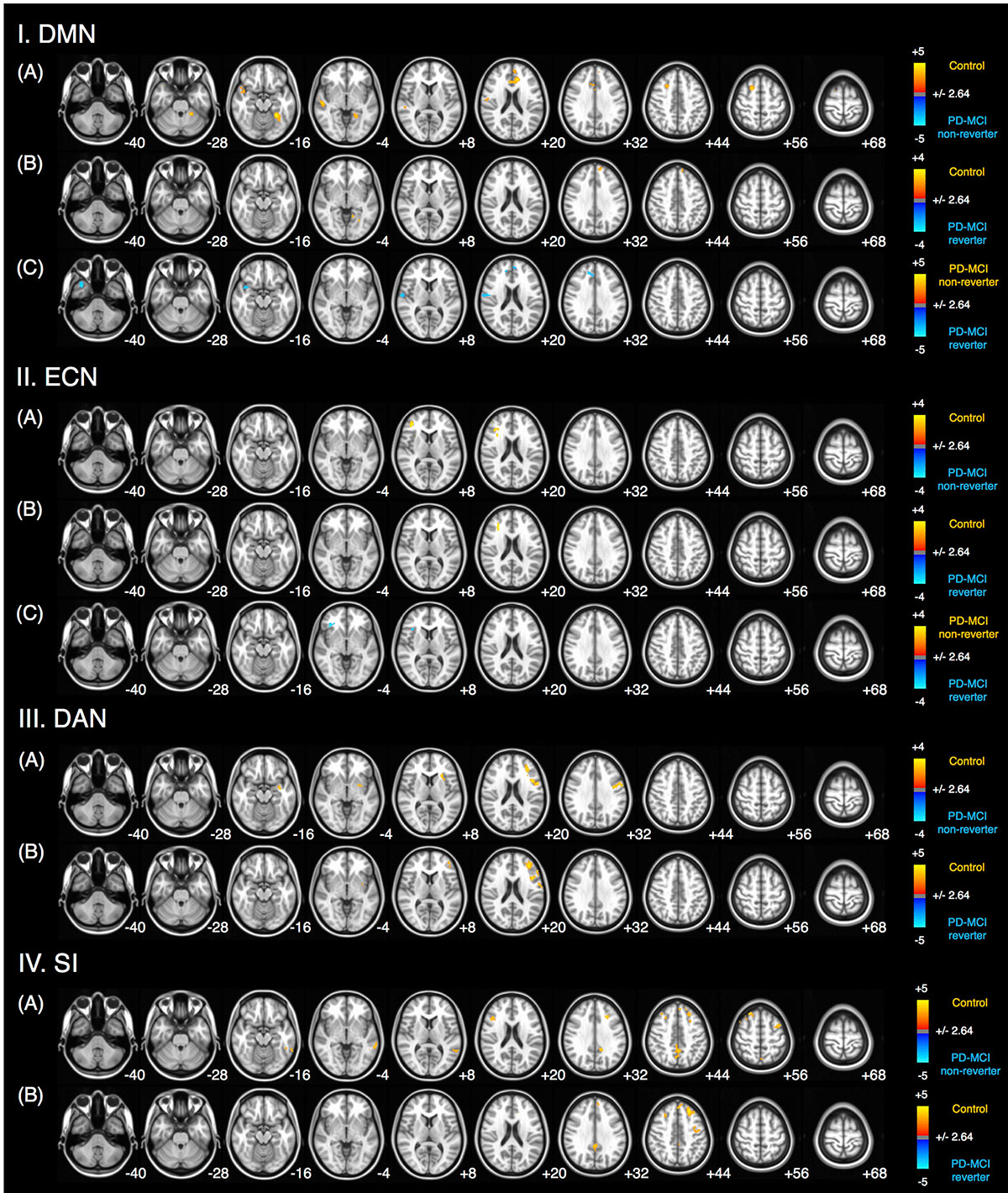Session Information
Date: Wednesday, September 25, 2019
Session Title: Cognition and Cognitive Disorders
Session Time: 1:15pm-2:45pm
Location: Agora 3 East, Level 3
Objective: To investigate whether reversion to cognitively normal status (CogN) is clinically relevant in Parkinson’s disease with mild cognitive impairment (PD-MCI).
Background: The concept of MCI is widely accepted as a transitional state between normal cognition and dementia not only in Alzheimer’s disease populations but also in patients with PD. However, not all patients with PD-MCI progress to dementia, and a considerable number of patients return to CogN during follow-up.
Method: 293 patients with PD-MCI underwent serial neuropsychological assessment 2-5 times (a mean interval, 1.5 years). Forty-six patients reverted to CogN (reverters) during follow-up, while the other 247 did not (non-reverters). We assessed the risk of cognitive worsening in PD-MCI reverters, non-reverters, and PD-CogN patients (n = 115). Additionally, we performed comparative analyses of cortical thickness, white matter integrity, and resting-state functional connectivity between de novo PD-MCI reverters (n = 17) and matched non-reverters (n = 34).
Results: PD-MCI reverters were younger, had higher frequencies of single-domain MCI type and amnestic type with retrieval failure, and showed better cognitive performance compared with non-reverters. PD-MCI reverters had a lower risk of dementia conversion relative to that in the non-reverters (hazard ratio, 11.6; p = 0.001). The risk of reconversion to MCI or progression to dementia in PD-MCI reverters was similar to that of cognitive worsening in PD-CogN patients. The reverter group exhibited greater cortical thickness in the right parahippocampal gyrus relative to the non-reverter group, while white matter integrity did not differ between the groups. Additionally, PD-MCI reverters exhibited less severely decreased functional connectivity in the default mode and executive control networks [figure 1].
Conclusion: This study demonstrated that PD-MCI reverters had relatively preserved structural and functional integrity and a favorable cognitive prognosis compared with those in the non-reverters, suggesting that cognitive defect and neurodegenerative burden are less severe in this group.
References: N/A
To cite this abstract in AMA style:
SJ. Chung, Y-H. Park, YH. Sohn, J-M. Lee, PH. Lee. MCI reverters have a favorable cognitive prognosis and cortical integrity in Parkinson’s disease [abstract]. Mov Disord. 2019; 34 (suppl 2). https://www.mdsabstracts.org/abstract/mci-reverters-have-a-favorable-cognitive-prognosis-and-cortical-integrity-in-parkinsons-disease/. Accessed December 11, 2025.« Back to 2019 International Congress
MDS Abstracts - https://www.mdsabstracts.org/abstract/mci-reverters-have-a-favorable-cognitive-prognosis-and-cortical-integrity-in-parkinsons-disease/

